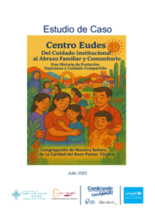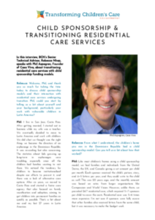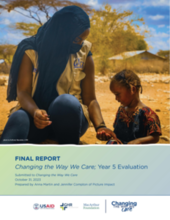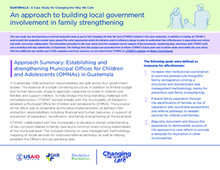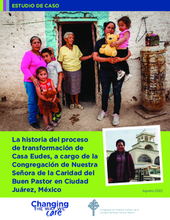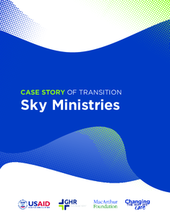This page contains documents and other resources related to children's care in the Americas. Browse resources by region, country, or category.
Displaying 11 - 20 of 566
Integrated healthcare models combining behavioral and primary care provide solutions for vulnerable pediatric populations, especially youth in foster care, facing disproportionately high rates of chronic conditions and mental health issues. This review synthesizes current literature to assess the impact of integrated care on health outcomes for youth in foster care in the U.S..
Desde Tijuana, este relato muestra cómo una comunidad religiosa, las Hermanas de Nuestra Señora de la Caridad del Buen Pastor, decidió pasar de un modelo institucional de cuidado a un enfoque centrado en las familias y la vida comunitaria, priorizando el derecho de cada niña, niño y adolescente a crecer en un entorno seguro, amoroso y protector.
In this interview, BCN’s Senior Technical Advisor, Rebecca Nhep, speaks with Phil Aspegren, Founder of Casa Viva, about transitioning residential care services with child sponsorship funding models.
Faith to Action has developed a 3-day in-person event for U.S.-based organizations serving orphaned and vulnerable children around the world. The purpose of this event is to enhance your learning and connections in the journey of transitioning from residential care to family-based care.
The Final Report: Changing the Way We Care; Year 5 Evaluation highlights the Changing The Way We Care (CTWWC) initiative’s substantial contributions to advancing care reform globally and in demonstration countries—Guatemala, Kenya, and Moldova—through strengthened policies, systems, and stakeholder collaboration.
This case study, part of the five-year evaluation of the Changing the Way We Care (CTWWC) initiative, examines efforts in Guatemala to strengthen child and family protection through local government engagement.
This case study outlines the financial impact of the transition of Bridges Safehouse, an organization that provided support to a total of 834 children, youth and adults, through their residential and community-based intervention programs combined.
This case study highlights the transition of the Sisters of Our Lady of Charity of the Good Shepherd in Tijuana. It presents the highs and lows that come with a change process of moving from residential care to community-based services focused on family strengthening.
Este estudio de caso destaca la transición de servicios de cuidado residencial a los basados en la familia y comunidad las realizado por las Hermanas de Nuestra Señora de la Caridad del Buen Pastor, en Ciudad Juárez, México.
This case story is meant to illustrate transition, the actors involved, the challenges and the success factors; recognizing that each transition is an individual process with different starting points, different dynamics and different evolutions.



